Victory lies
In the wanton
To be a sitting president
Existentially unable to take a stand
As a wizard behind the bully pulpit
Meaning only
Curtains for US
A commandeered
In chief smitten
Buy the status qouteth
Juggling interest
In a-moral bankruptcy
Issuing debt sentences
Wile balderdashing dreams
In compromising positions
Poll dancing
For hard one
Elections
In feckless cockiness
If only
Too covet to term
Any chide or promise
The next won’s problem
And if such a state of the union
Bares an infantile posterity
Too whatever
Extant illegitimate
In the victory lies
The spoils
With this poem, I grudgingly join the charade sometimes referred to as Presidential election season. Unfortunately, it is rarely too early to say that the next commander-in-chief of the world’s largest military superpower will not bring us peace. If you want to join the truly delusional, give them a Nobel Peace Prize before they do anything to not earn it! The good news is that the system is not broken. 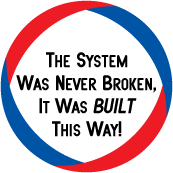 The bad news is that the system is fixed! Electoral politics, particularly the farther you go up the ladder, has a limited range of possible options. This simply means that the leadership we get is tightly constrained to the powers that be, the status quo. Electoral politics is akin to changing the system from within, using presumptuously representative democracy garnered through elections and direct means (think money and status) of influencing such alleged representatives. Non-electoral politics is akin to changing the system from outside the standardly sanctioned tools of democracy.
The bad news is that the system is fixed! Electoral politics, particularly the farther you go up the ladder, has a limited range of possible options. This simply means that the leadership we get is tightly constrained to the powers that be, the status quo. Electoral politics is akin to changing the system from within, using presumptuously representative democracy garnered through elections and direct means (think money and status) of influencing such alleged representatives. Non-electoral politics is akin to changing the system from outside the standardly sanctioned tools of democracy. 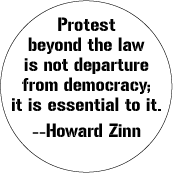 Of course, these two ways of being politically active are not mutually exclusive. In fact, non-electoral politics is simply a more holistic way of changing the body politic. For example, I would encourage people to vote. It doesn’t take much time and it makes some difference. Let your representatives know directly from you what you want from them. Ask for what you want. However, if we rely only on electoral politics to meet the needs and demands of the people, the 99%, then we should expect to be sorely disappointed. My view is that politicians are largely akin to the rigging on a sailboat, and they will ultimately go largely wherever the wind blows. Speaking into the captain’s ear may be considered proper protocol, but this is largely reserved for a privileged few who can cancel out voices heard from the masses from dinghies or from people who are overboard. My goal is to change the political winds. Part of power is the ability to define or frame the questions we ask.
Of course, these two ways of being politically active are not mutually exclusive. In fact, non-electoral politics is simply a more holistic way of changing the body politic. For example, I would encourage people to vote. It doesn’t take much time and it makes some difference. Let your representatives know directly from you what you want from them. Ask for what you want. However, if we rely only on electoral politics to meet the needs and demands of the people, the 99%, then we should expect to be sorely disappointed. My view is that politicians are largely akin to the rigging on a sailboat, and they will ultimately go largely wherever the wind blows. Speaking into the captain’s ear may be considered proper protocol, but this is largely reserved for a privileged few who can cancel out voices heard from the masses from dinghies or from people who are overboard. My goal is to change the political winds. Part of power is the ability to define or frame the questions we ask. 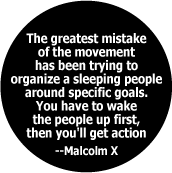 The answers we get depend profoundly on the questions we ask! Oftentimes, wee have to take such power, not simply ask for it. Movements like Black Lives Matter or Occupy Wall Street have been successful at manifesting such power. “The 1%” and “the 99%” are now part of our lexicon, framing the way we view the world and molding the questions we ask. The simple and persistent assertion that black lives matter has thrown a wrench into the largely invisible (to white people) machine of white supremacy. One of the greatest tools of the powers that be is the power of distraction. The insistence that large movements have a detailed set of demands is central to this playbook. As if the powers that be simply overlooked these huge injustices (yes) that could be legitimately be attacked on multiple fronts and they are waiting (stalling) to jump into action.
The answers we get depend profoundly on the questions we ask! Oftentimes, wee have to take such power, not simply ask for it. Movements like Black Lives Matter or Occupy Wall Street have been successful at manifesting such power. “The 1%” and “the 99%” are now part of our lexicon, framing the way we view the world and molding the questions we ask. The simple and persistent assertion that black lives matter has thrown a wrench into the largely invisible (to white people) machine of white supremacy. One of the greatest tools of the powers that be is the power of distraction. The insistence that large movements have a detailed set of demands is central to this playbook. As if the powers that be simply overlooked these huge injustices (yes) that could be legitimately be attacked on multiple fronts and they are waiting (stalling) to jump into action. 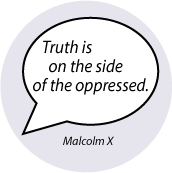 What part of “Stop Wall Street from robbing us,” or blacks crying out “Stop killing us,” don’t they understand?! The powers that be are not stupid, simply shrewd. They will do everything in their power to distract us, divide us, and if need be, conquer us with violence, exposing their morally bankrupt and anti-democratic foundations. Of course, the people pushing back on the lies of the powers that be exposes the veneer of civility and democracy that so-called respectable governments need to function.
What part of “Stop Wall Street from robbing us,” or blacks crying out “Stop killing us,” don’t they understand?! The powers that be are not stupid, simply shrewd. They will do everything in their power to distract us, divide us, and if need be, conquer us with violence, exposing their morally bankrupt and anti-democratic foundations. Of course, the people pushing back on the lies of the powers that be exposes the veneer of civility and democracy that so-called respectable governments need to function. 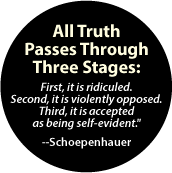 This was central to Gandhi’s political strategy. As paraphrased in the Movie, Gandhi: “What you cannot do is accept injustice — you must make the injustice visible. The function of a civil resister is to provoke a response, and we will continue to provoke until they respond or they change the laws. It will not be over if they arrest me, or if they arrest a thousand people…it is not only generals who know how to run campaigns! They are not in control — we are. That is the strength of civil resistance.” May we hold firm to the truth, “satyagraha,” and be patient as the details will follow.
This was central to Gandhi’s political strategy. As paraphrased in the Movie, Gandhi: “What you cannot do is accept injustice — you must make the injustice visible. The function of a civil resister is to provoke a response, and we will continue to provoke until they respond or they change the laws. It will not be over if they arrest me, or if they arrest a thousand people…it is not only generals who know how to run campaigns! They are not in control — we are. That is the strength of civil resistance.” May we hold firm to the truth, “satyagraha,” and be patient as the details will follow.



